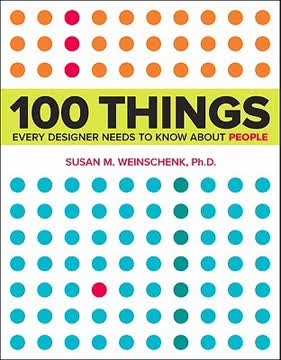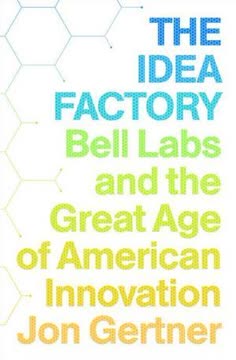重点摘要
1. 循环:信息产业的开放与控制模式
历史显示信息技术的典型进程:从某人的爱好到某人的产业;从临时拼凑的装置到光滑的生产奇迹;从自由访问的渠道到由单一公司或卡特尔严格控制的渠道——从开放系统到封闭系统。
循环解释。 作者称这种模式为“循环”,这是信息产业历史上反复出现的现象。它始于一个开放和创新的时期,通常由业余爱好者和小规模企业家领导。随着技术的成熟及其商业潜力的显现,大型公司介入,整合控制并创建封闭系统。
历史中的例子:
- 电话:从贝尔的发明到AT&T的垄断
- 广播:从业余广播员到网络主导
- 电影:从独立制片人到制片厂系统控制
- 互联网:从开放的学术项目到日益增加的企业影响
循环展示了产业如何从去中心化、创新的时期过渡到集中化、受控的阶段,往往以牺牲创造力和消费者选择为代价。
2. 颠覆性创始人:挑战既定系统的外来者
我们记住的发明家之所以重要,不仅仅是因为他们是发明家,而是因为他们是“颠覆性”产业的创始人,这些产业动摇了技术现状。
颠覆性创始人的特征:
- 通常是既定行业的外来者
- 对所面临的问题有独特的视角
- 愿意挑战传统智慧并承担风险
颠覆性创始人的例子:
- 亚历山大·格雷厄姆·贝尔(电话)
- 埃德温·阿姆斯特朗(调频广播)
- 史蒂夫·沃兹尼亚克(个人计算机)
这些人不仅发明了新技术,还创造了全新的产业,往往面对来自既定玩家的阻力。他们的成功通常依赖于技术创新和驾驭复杂商业及监管环境的能力。
3. 专利的力量:保护创新与促进垄断
在外来发明者手中,专利是一种企业盾牌,可以防止大型工业力量将你消灭或控制你的公司和行业。
专利的双重性质。 专利既是对创新者的保护,也是垄断控制的工具。它们可以:
- 保护小发明者不被更大的竞争对手压倒
- 允许既定公司保持主导地位并抑制竞争
历史例子:
- 贝尔的电话专利促成了AT&T的创建
- 爱迪生的电影专利导致了电影专利公司(爱迪生信托)的成立
专利在塑造信息产业中起着关键作用,往往决定一个行业是保持开放和竞争,还是变得封闭和垄断。专利的战略使用可以决定颠覆性技术是成功还是被既定玩家压制。
4. 政府的角色:监管、放松管制与产业塑造
联邦通信委员会和国会认为应该祝福的不是诞生了广播的开放系统,而是试图扼杀它的封闭系统。
政府对信息产业的影响:
- 监管决策可以决定行业结构
- 反垄断行动可以打破垄断或允许其存在
- 政策选择往往偏向既定玩家而非新来者
关键历史干预:
- 创建AT&T的受监管垄断
- 联邦通信委员会在塑造广播和电视广播中的角色
- 1984年拆分AT&T
- 1996年电信法案
政府在信息产业中的角色复杂且常常自相矛盾。虽然有时会促进竞争和创新,但也经常支持强大垄断的创建和维持。理解这种动态对于预测和影响信息产业的未来至关重要。
5. 垂直整合:媒体帝国的双刃剑
在行业的多个层面上拥有强大股份会使公司处于固有的利益冲突中。你不能同时服务两个主人,创造信息的目标往往与传播信息的目标相冲突。
垂直整合的好处:
- 规模和范围经济
- 控制整个生产和分销链
- 能够交叉推广和利用资产
垂直整合的缺点:
- 抑制创新和竞争
- 内容创作与分发之间的利益冲突
- 潜在的审查和信息流控制
历史例子:
- 好莱坞制片厂系统对生产、分销和放映的控制
- 美国在线时代华纳合并及其最终失败
- 苹果的集成硬件、软件和内容生态系统
媒体和信息产业中的垂直整合可以导致强大、高效的公司,但也带来创新、竞争和言论自由的风险。这些好处和缺点之间的紧张关系继续塑造信息格局。
6. 互联网:激进的突破还是下一个循环的受害者?
互联网以其独特的开放设计,导致了一个时刻,所有其他信息网络都汇聚到它上面,成为一个“超级高速公路”,用1990年代的术语来说。
互联网的革命性方面:
- 去中心化、开放的架构
- 新服务和内容的低进入门槛
- 全球覆盖和互联性
互联网开放性的挑战:
- 网络中立性辩论
- 大型科技公司的日益集中
- 政府的监控和审查努力
互联网代表了与以往信息技术的潜在激进突破,体现了开放和去中心化的原则。然而,它面临来自企业和政府力量的日益增加的压力,这可能导致一个更封闭、受控的系统。问题在于互联网能否保持其开放特性,还是会屈服于集中化和控制的历史模式。
7. 分离原则:信息自由的框架
我所提议的不是一种监管方法,而是一种对信息经济的宪法方法。我的意思是,一个目标是约束和分割所有源自信息控制的权力的制度。
分离原则的关键组成部分:
- 内容创作与分发的分离
- 信息基础设施与服务的分离
- 政府作为对私人权力的制衡,而不是其帮手
实施策略:
- 反垄断执法以防止过度垂直整合
- 信息基础设施的公共承运人规则
- 培养开放性和信息伦理文化
分离原则为保持信息产业的开放性和创新性提供了框架。通过防止权力的过度集中并保持信息经济不同层次之间的明确界限,这种方法旨在保留开放和封闭系统的好处,同时减轻各自的缺点。
最后更新日期:
FAQ
What's The Master Switch about?
- Exploration of Information Empires: The Master Switch by Tim Wu examines the rise and fall of information industries, focusing on how new technologies often start as open systems but eventually become monopolized.
- The Cycle Concept: Wu introduces "The Cycle," describing the typical progression of information technologies from open to closed systems, highlighting historical patterns in telephony, radio, film, and the Internet.
- Historical Context: The book provides a historical narrative, detailing key figures like Theodore Vail of AT&T and Adolph Zukor of Paramount Pictures, and their roles in shaping the information landscape.
Why should I read The Master Switch?
- Understanding Modern Media: Reading this book helps readers understand the dynamics of modern media and the implications of monopolistic control over information.
- Lessons from History: Wu draws parallels between past information empires and current technologies, offering insights into how history may repeat itself with the Internet.
- Critical Thinking: The book encourages critical thinking about the future of information technologies and the importance of maintaining open systems for innovation and free expression.
What are the key takeaways of The Master Switch?
- Open to Closed Transition: Every major information technology has transitioned from an open, innovative phase to a closed, monopolistic one, often stifling creativity and diversity.
- Role of Monopolies: Wu argues that monopolies, while sometimes efficient, can lead to a lack of innovation and reduced public discourse, as seen with AT&T and Hollywood studios.
- Importance of Regulation: The author discusses the role of government regulation in shaping industries, suggesting that without oversight, monopolies can flourish at the expense of public interest.
What is "The Cycle" as defined in The Master Switch?
- Definition of The Cycle: Wu defines "The Cycle" as the historical pattern where new information technologies start as open systems, encouraging innovation, but eventually become monopolized and closed off.
- Historical Examples: The Cycle is illustrated through various technologies, including telephony, radio, and film, each of which began with open access but ended up dominated by a few powerful entities.
- Implications for the Internet: Wu warns that the Internet, despite its current openness, may also be subject to The Cycle, leading to potential monopolistic control in the future.
How does The Master Switch relate to the Internet?
- Current Context: Wu discusses the Internet as the latest information technology that began with open access and innovation but faces threats of monopolization from large corporations.
- Historical Parallels: The book draws parallels between the early days of the Internet and previous technologies, suggesting that the same patterns of control and closure may emerge.
- Call for Vigilance: Wu emphasizes the need for vigilance and advocacy for open systems to prevent the Internet from following the same path as earlier information empires.
What role does government play in the information industries according to The Master Switch?
- Regulatory Influence: Wu discusses how government regulation can either support or hinder the development of information industries, often favoring established monopolies over new entrants.
- Historical Examples: The book provides examples of how government actions, such as the Kingsbury Commitment with AT&T and the breakup of Hollywood studios, shaped the landscape of information industries.
- Need for Balance: Wu argues for a balanced approach to regulation that encourages competition and innovation while preventing monopolistic practices.
What is the Separations Principle mentioned in Master Switch?
- Definition of the Principle: The Separations Principle advocates for keeping different layers of the information economy—content creation, distribution, and access—distinct from one another.
- Historical Context: Wu argues that historical monopolies, like AT&T, demonstrate the dangers of vertical integration in information industries.
- Implementation: The principle suggests that regulatory bodies like the FCC should enforce rules that prevent monopolistic practices, ensuring a more equitable information landscape.
How does Tim Wu define the concept of net neutrality in Master Switch?
- Core Definition: Net neutrality is the principle that Internet service providers must treat all data on the Internet equally, without discriminating or charging differently by user, content, website, platform, or application.
- Historical Context: Wu connects net neutrality to the historical struggles for open communication channels, emphasizing its importance in preventing monopolistic control over information.
- Implications for the Future: The book warns that without net neutrality, the Internet could become a closed system dominated by a few powerful entities.
What are the best quotes from The Master Switch and what do they mean?
- “At stake is not the First Amendment or the right of free speech, but exclusive custody of the master switch.”: This quote underscores the central theme of the book, highlighting the importance of who controls information and communication technologies.
- “History shows a typical progression of information technologies: from somebody’s hobby to somebody’s industry.”: This reflects Wu's argument about the inevitable transition from open innovation to monopolistic control.
- “The brave new technologies of the twentieth century… eventually evolved into privately controlled industrial behemoths.”: This quote encapsulates the book's warning about the dangers of monopolization and the loss of public access to information.
How does The Master Switch address the concept of free speech?
- Connection to Information Control: Wu posits that free speech is closely tied to who controls information technologies, suggesting that monopolies can limit the diversity of voices and ideas.
- Censorship Mechanisms: The book explores how centralized control over media can lead to censorship, whether through formal regulations or informal pressures from powerful entities.
- Advocacy for Openness: Wu advocates for maintaining open systems in information industries to ensure a vibrant marketplace of ideas and protect free speech.
What are the historical examples used in Master Switch?
- AT&T and the Telephone Monopoly: Wu details the rise and fall of AT&T, illustrating how it became a monopoly and the subsequent breakup in the 1980s.
- The Film Industry: The book discusses the emergence of Hollywood and the establishment of the studio system, highlighting how vertical integration stifled competition and creativity.
- Cable Television: Wu explores the deregulation of cable television in the 1970s and 1980s, showing how it transformed the media landscape.
How does The Master Switch conclude regarding the future of information industries?
- Cyclical Nature: Wu concludes that the cyclical nature of information industries suggests that without intervention, monopolies will continue to emerge and stifle innovation.
- Call to Action: The author calls for active engagement from consumers, policymakers, and innovators to advocate for open systems and resist the encroachment of monopolistic control.
- Hope for Change: Despite the challenges, Wu expresses hope that history can inform future actions, allowing society to navigate the complexities of information technology and maintain a diverse and open media landscape.
评论
《主开关》因其对历史上信息帝国的深刻分析而广受好评。读者们欣赏吴对电信、广播、电视和互联网垄断的探讨。书中的历史细节和对监管问题的审视也备受赞誉。一些人批评吴对谷歌的偏见,并认为“循环”概念牵强。许多人认为这是了解信息技术演变及其对社会影响的必读书籍,尽管有少数人觉得它过于以美国为中心或部分内容过时。
Similar Books











